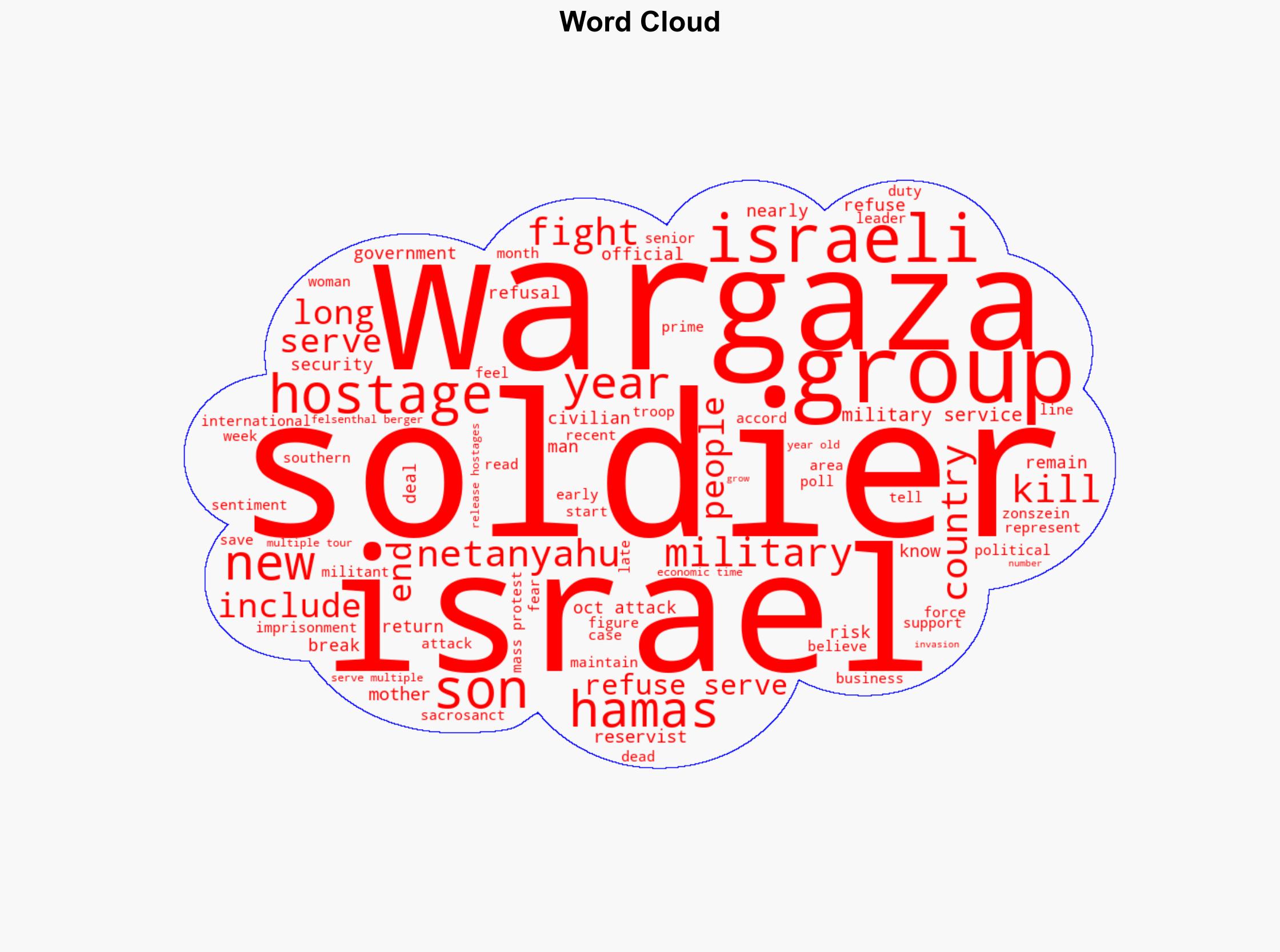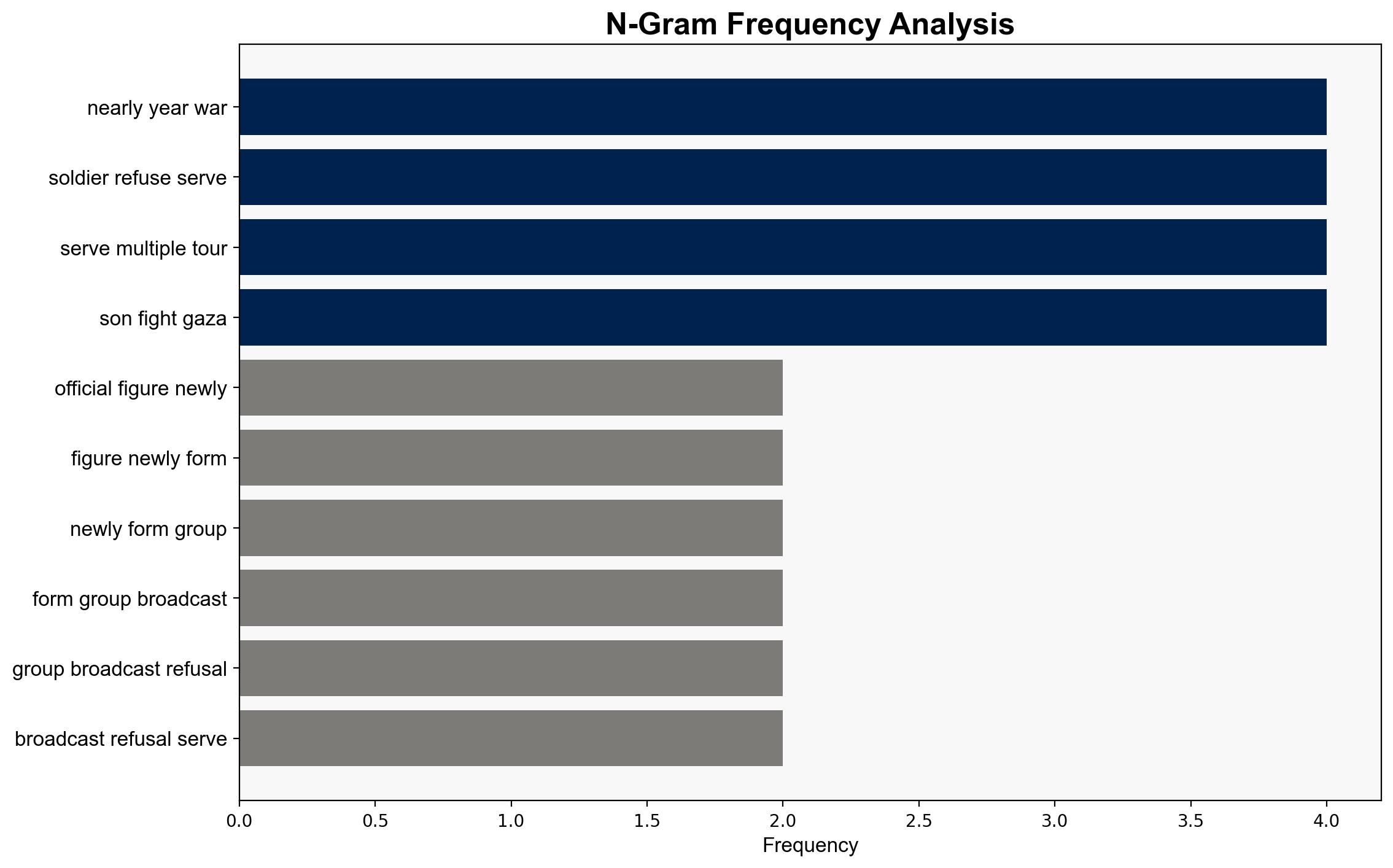Israeli soldiers and their mothers increasingly reject calls to return to Gaza – The Times of India
Published on: 2025-09-12
Intelligence Report: Israeli soldiers and their mothers increasingly reject calls to return to Gaza – The Times of India
1. BLUF (Bottom Line Up Front)
The growing refusal of Israeli soldiers and their families to return to Gaza reflects a significant shift in public sentiment, potentially undermining military operations and political stability. The most supported hypothesis suggests that this movement is primarily driven by war fatigue and political disillusionment. Confidence Level: Moderate. Recommended action includes diplomatic engagement to address humanitarian concerns and strategic communication to manage domestic dissent.
2. Competing Hypotheses
1. **Hypothesis A**: The refusal to serve is primarily driven by war fatigue and a belief that military operations are politically motivated, with little strategic gain.
– **Supporting Evidence**: Reports of demoralization among soldiers, public protests, and statements from mothers fearing for their sons’ lives.
2. **Hypothesis B**: The refusal is a strategic maneuver by opposition groups to pressure the government into negotiating with Hamas and addressing humanitarian issues.
– **Supporting Evidence**: Involvement of organized groups like “Save Our Sons” and public criticism of Prime Minister Netanyahu’s policies.
Structured Analytic Techniques (SATs) such as Analysis of Competing Hypotheses (ACH) suggest Hypothesis A is better supported due to the widespread reports of fatigue and demoralization, which are less likely to be orchestrated by opposition groups alone.
3. Key Assumptions and Red Flags
– **Assumptions**: It is assumed that the refusal to serve is a genuine grassroots movement rather than a politically orchestrated campaign.
– **Red Flags**: Potential underreporting of dissent within the military and the influence of political entities on public sentiment.
– **Blind Spots**: Lack of detailed data on the scale of refusals and the internal military response.
4. Implications and Strategic Risks
– **Military Readiness**: Continued refusals could degrade operational effectiveness and morale.
– **Political Stability**: Growing public dissent may lead to increased political pressure on the government, potentially destabilizing Netanyahu’s administration.
– **International Relations**: Heightened scrutiny and criticism from the international community regarding humanitarian impacts could affect Israel’s diplomatic standing.
5. Recommendations and Outlook
- **Mitigation**: Engage in transparent dialogue with dissenting groups to understand grievances and explore non-military solutions.
- **Exploitation**: Use strategic communication to reinforce the legitimacy of military operations and address misinformation.
- **Scenario Projections**:
– **Best Case**: Successful negotiation with dissenting groups leads to restored morale and operational readiness.
– **Worst Case**: Escalation of dissent results in significant military and political destabilization.
– **Most Likely**: Continued low-level dissent with periodic escalations, requiring ongoing management.
6. Key Individuals and Entities
– **Benjamin Netanyahu**: Central figure in the political discourse surrounding military operations.
– **Noorit Felsenthal Berger**: Represents concerned mothers opposing military service.
– **Avshalom Zohar**: Soldier expressing demoralization, indicative of broader sentiment.
7. Thematic Tags
national security threats, military morale, political dissent, regional focus




